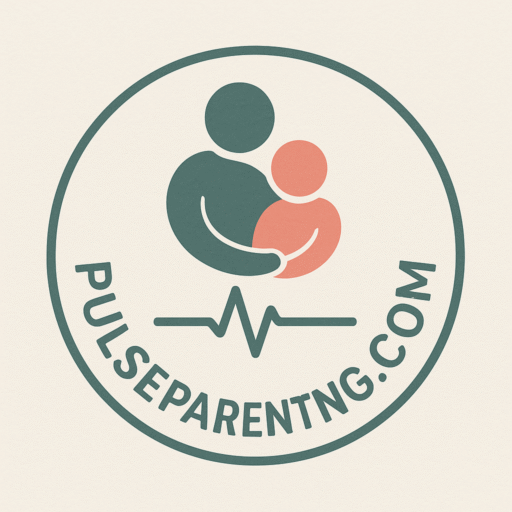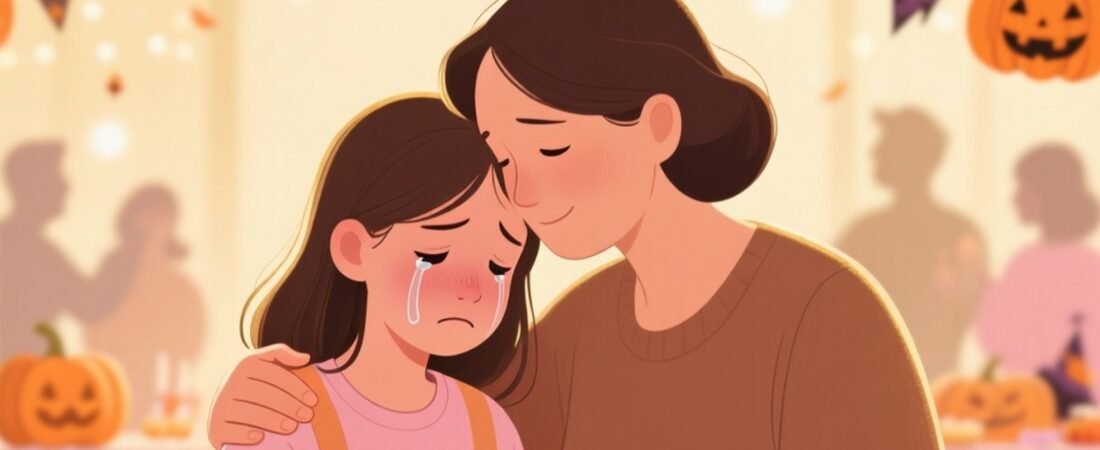Few things tug at a parent’s heart like seeing your child excluded. Recently, a Reddit thread captured this pain: a mom’s 13-year-old daughter was left out of Halloween plans by her longtime friends, discovering the exclusion through TikTok posts. The mom’s heartbreak was palpable, as was her uncertainty about how to help her daughter—especially when her daughter shut down and didn’t want to talk.
This scenario is painfully common in the tween and teen years, and it’s even more complicated in the age of social media. Let’s explore what parents can do—both for our kids and ourselves—when exclusion and online hurt collide.
The Double Sting: Exclusion and Social Media
It’s one thing to be left out; it’s another to see it unfold in real time on your phone. As many Reddit commenters pointed out, social media can intensify feelings of rejection and isolation. One parent shared, “Instead of her being disappointed that everyone bailed but spending time with her parent and talking about her feelings, she gets tormented seeing her friends’ TikTok posts, refuses to spend time with you, then takes to TikTok to share her feelings and feel even more isolated.”
Another wise voice added, “TikTok is so horrible for girls’ mental health. That has to stop. But also, I would just tell her you’re taking her out for ice cream, to town, etc. If you just say ‘are you ok?’ she won’t open up.”
Why It Hurts So Much—For Both of You
As parents, we often feel our children’s pain as keenly as our own. The original poster wrote, “I have sobbed to my husband all night because my heart hurts so bad for her and I don’t know how to fix it. I know I can’t.”
This feeling of helplessness is normal. As one commenter put it: “It’s horrible when it happens to our children. And we are so powerless. All we can do is keep making sure they know they are loved, and try and build their self-esteem—and they will be fine eventually. But the hurt there and then, not much we can do.”
Supporting Your Child: Gentle Steps That Help
- Validate, Don’t Minimize: “I’m so sorry your friends did that. You didn’t deserve it. I’m here whenever you want to talk.” Validation is gold, even if your child doesn’t want to talk right away.
- Offer Low-Pressure Connection: Suggest a favorite activity—ice cream, a movie, baking together. Sometimes, connection happens side-by-side, not face-to-face.
- Share Your Own Stories: Vulnerability models resilience. One parent said, “Sometimes I will randomly tell my son a sad or embarrassing story that may not relate to what he’s going through but just to show him we can be vulnerable with each other.”
- Encourage New Connections: If your child is involved in activities or clubs, help them nurture those friendships. One Redditor shared, “My mom encouraged me to invite over other friends the next weekend. I invited over one girl I wasn’t as close with…20 years later and we’re still best friends.”
- Don’t Trash-Talk the Other Kids: As tempting as it is, avoid criticizing the friends who excluded your child. Relationships at this age can be fluid, and you want to remain a safe, supportive sounding board.
Setting Boundaries Around Social Media
Many parents in the thread debated whether to remove TikTok. There’s no one-size-fits-all answer, but several wise approaches emerged:
- Frame It as a Boundary, Not a Punishment: “I realized that this app is allowing you to not consider your own boundaries. It is allowing what the girls are posting to impact how you feel about yourself…So, as your mom, I am going to help you establish and practice setting this boundary for yourself. I am going to remove TikTok for right now. We can revisit this in a few months.”
- Take a Family Approach: If you’re considering a social media break, consider making it a family-wide policy. This avoids singling out your child and models healthy digital habits.
- Wait for the Rawness to Pass: One commenter suggested waiting a few days before making any changes, so it’s not directly linked to the painful event.
- Educate Together: Read about the effects of social media on teens’ mental health together. Books like The Anxious Generation by Jonathan Haidt were recommended by several Redditors.
It’s worth noting that some parents and experts believe removing social media after a painful event can sometimes feel like an additional loss. As always, you know your child best. If you decide to limit or remove access, do so with empathy and lots of open conversation.
Building Resilience—For Both of You
As hard as it is to watch your child hurt, these moments are also opportunities for growth. One commenter wisely said, “The only silver lining? You’re in a great position to help her learn coping skills she’ll use her whole life—when friends exclude her, boyfriends ghost, coworkers go to lunch without her. It happens at every age.”
Encourage your child to focus on friends who treat them with kindness and respect. Remind them—and yourself—that everyone experiences exclusion at some point, and it doesn’t define their worth.
Final Thoughts: You’re Not Alone
If you’re reading this with a heavy heart, know that you’re not alone. The Reddit thread is filled with empathy, wisdom, and solidarity from parents who have been there. As one parent put it, “She sounds like a good kid with a mom who cares—that counts for a lot.”
Keep showing up, keep listening, and keep loving your child fiercely. The pain will pass. And in the meantime, you’re helping your child build the resilience and self-worth they’ll carry for a lifetime.
For more community insights, see the original Reddit thread.

